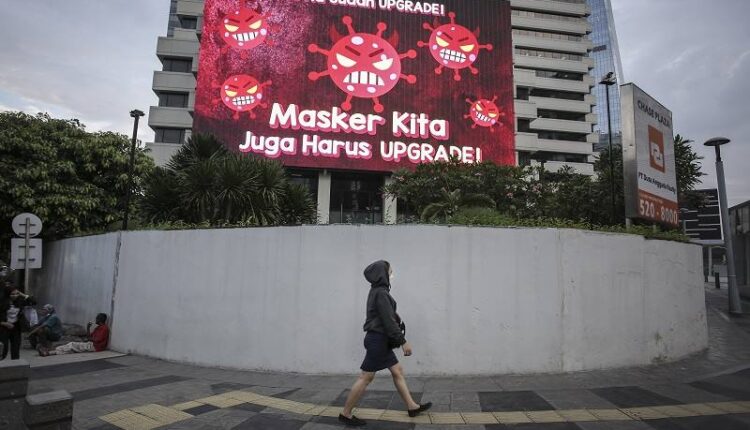Beware of Spike in Covid-19 Cases in Java and Bali
By: Savira Ayu)*
Covid-19 is still a pandemic status in Indonesia, especially with the emergence of the Omicron variant in various regions, especially in Java and Bali. The public, especially in Java-Bali, are also asked to be aware of the upward trend of spikes in positive cases of the Corona virus.
It should be noted that Covid-19 in Java and Bali has increased in the last two weeks. The World Health Organization (WHO) advises the government to start being aware of the spread of the virus so as not to trigger new Covid-19 clusters, especially in the region.
There is a need for massive case contact tracing or tracing, especially in the midst of the Omicron variant. However, currently the WHO transmission category is still at a low level, based on observations from January 10 to 16, 2022.
WHO advised in its weekly report that it is very important for every administrative level to closely monitor every possible cluster to ensure rapid response and containment of potential outbreaks.
Complete contact tracing for each identified case is essential to prevent the spread of infection especially in the context of Omicron cases as proper containment of the first few cases will be essential to prevent spread.
Unfortunately, Covid cases have increased in DKI Jakarta. Especially for the number of Covid-19 patients being treated in hospitals, a slight increase from the previous 758 cases, now reaching 771 people as of January 16, 2022. At the same time, DKI Jakarta also reported 3,045 Covid-19 cases undergoing self-isolation, an increase from the previous as many as 3,011 patients.
Meanwhile, the overall Covid-19 bed occupancy rate (BOR) is below 5 percent for more than three months. On January 16, 2022, the national hospital BOR rose 5 percent from the previous week, which was 4 percent. Meanwhile, the ICU BOR rate is stable, as in the previous week, which was at 4 percent.
The peak of the Omicron wave in Indonesia is expected to occur in mid-February to early March 2022. Currently, an increase in cases has begun to be seen.
Reflecting on other countries, Omicron waves can increase rapidly. The government predicts that the increase in cases has the potential to rise even higher in DKI Jakarta Province if people are not careful and alert. The spread of the Omicron variant in Indonesia is certainly an alarm for us to be vigilant again in entering the new variant of Covid-19.
Coordinating Minister for Maritime Affairs and Investment Luhut Binsar Pandjaitan said the increase in cases in Java and Bali was also seen in the provinces of West Java and Banten. This is driven by the West Java region which is included in the Jabodetabek agglomeration section.
Especially for other areas in Java-Bali, cases in other provinces outside Jakarta, West Java and Banten are relatively well maintained, but the spread of cases is also predicted to spread more quickly considering the mobility that occurs in Java-Bali is already very high.
On a different occasion, the Bali Province Covid-19 Handling Task Force asked the local community to be more vigilant because Bali is included in 11 provinces in the country that experienced an increase in corona virus cases for more than one week in a row.
Secretary of the Bali Province Covid-19 Task Force, I Made Rentin, said the case was indeed increasing, but it was still consistent in the single digits. Rentin also asked the public to remain obedient and disciplined in complying with health protocols.
According to Rentin, based on data from the Covid-19 Handling Task Force as of January 5, 2022, 11 provinces experienced an increase in Covid-19 cases for more than one week in a row. Of the 11 provinces, there are two regions that have consistently experienced increases for up to four weeks in a row, namely DKI Jakarta and Riau Islands.
There are also those who have experienced three weeks in a row, namely South Kalimantan. Eight provinces experienced an increase in cases in the last two weeks, including Bali. Rentin said that since January 2, 2022, there has been an increase in cases every day, although it is still consistent with only one digit. Namely 1, 5, 8, 1, 5, 5 and 6.
In addition, the Bali Provincial Task Force also noted that there were 65 active cases in Bali. From this data, it was recorded that 43 people were undergoing treatment at a referral hospital, 8 people were in centralized isolation and 14 others were undergoing independent isolation.
The increase in cases in various regions, especially Java and Bali, certainly cannot be underestimated, vigilance must continue to be increased while still complying with health protocols and reducing mobility.
)* The author is a contributor to Pertiwi Institute
